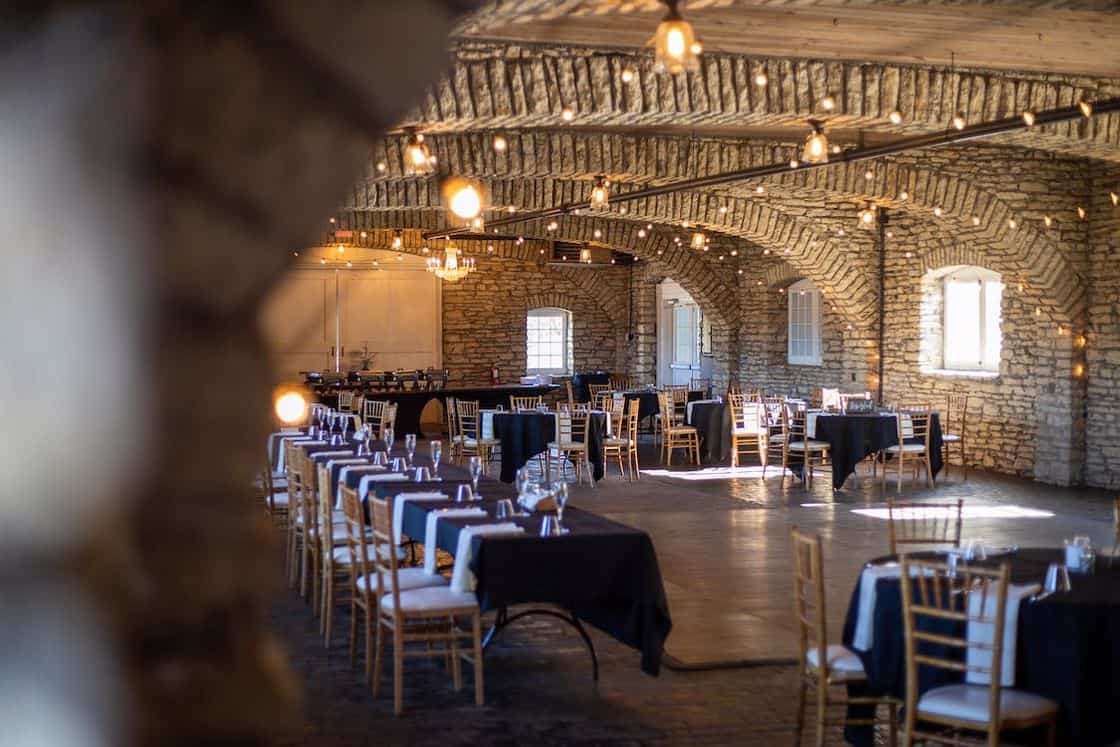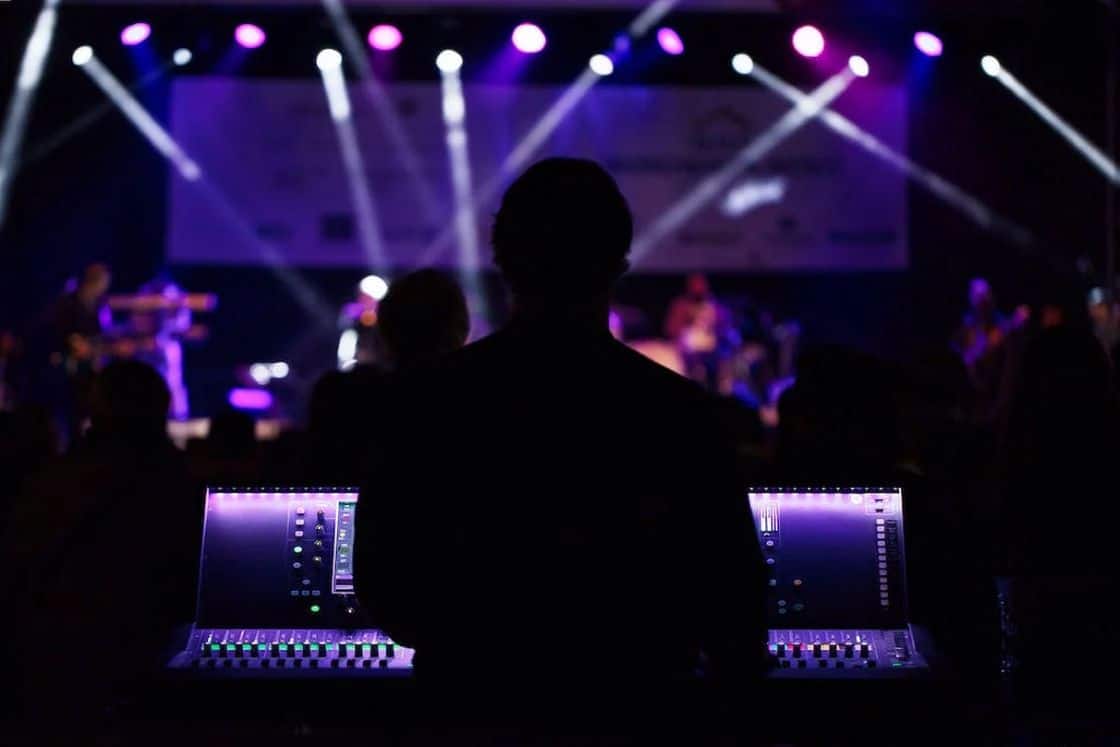The science of sensory design with event production charlotte
Comprehending Event Production: Why It Is Essential for Effective Events
Event production plays an essential function in forming successful celebrations. It involves mindful planning, control, and execution to ensure every detail lines up with the event's vision. This procedure not just boosts guest experiences yet also promotes significant links among participants. Recognizing the intricacies of event production can considerably impact the general end result. What are the essential aspects that add to an effective event, and how can they be properly managed?
The Role of Event Production in Producing Remarkable Experiences
Although many factors add to the success of an event, event production plays a crucial duty in crafting memorable experiences. This multifaceted process includes different aspects, consisting of planning, logistics, and execution. Efficient event production assurances that every information aligns with the overall vision, developing a smooth circulation that mesmerizes guests. By collaborating timelines, taking care of resources, and supervising technological facets, event producers establish a structure for impactful experiences.Moreover, they curate settings that reverberate with the target market, enhancing engagement and emotional link. From picking ideal locations to incorporating innovative technology, the choices made during production greatly affect how attendees regard and bear in mind the event. By focusing on high quality and focus to information, event production changes average celebrations into remarkable minutes, leaving long lasting impressions. Inevitably, the proficient orchestration of these elements defines the significance of an occasion, showcasing the significance of specialist event production in accomplishing outstanding results.
Trick Elements of Effective Event Production
Effective event production rests on several vital parts that ensure success. Planning and control establish a strong foundation, while technological configuration requirements attend to logistical needs. Furthermore, implementing target market involvement techniques boosts the general experience, making the event remarkable.
Planning and Sychronisation
Planning and control serve as the backbone of effective event production, guaranteeing that every information straightens perfectly to produce a remarkable experience. Reliable planning involves establishing a clear vision and purposes, while sychronisation requires the meticulous company of logistics, timetables, and sources. A well-defined timeline is necessary, leading all stakeholders via vital milestones and jobs. Interaction plays a crucial role, fostering partnership among team participants, suppliers, and location personnel. Normal conferences and updates aid to address challenges quickly, guaranteeing that everybody stays lined up with the event objectives. Inevitably, a structured technique to preparation and sychronisation not just enhances efficiency but also significantly contributes to the overall success and enjoyment of the event for attendees and coordinators alike.
Technical Arrangement Needs
An effective event depends heavily on its technical setup requirements, which incorporate essential parts such as audio-visual tools, lights, hosting, and connection. Audio-visual equipment consists of microphones, speakers, and projectors, making certain that discussions and performances are delivered plainly. Appropriate lighting enhances the setting and highlights essential locations, while staging offers the necessary system for audio speakers and performers. Connection, consisting of Wi-Fi and electrical access, is vital for seamless interaction and innovation integration. Each part needs to be carefully intended and implemented, tailored to the event's certain requirements. Poor technical arrangements can lead to disturbances, negatively influencing the overall experience for participants, highlighting the relevance of complete preparation and interest to detail in event production.
Target Market Interaction Strategies

The Importance of Preparation and Coordination
Preparation and coordination are important to the success of any event production. Reliable timeline administration, source allotment approaches, and team interaction dynamics play crucial roles in making sure that all elements come together flawlessly. Without a structured technique to these aspects, events run the risk of dealing with delays, spending plan overruns, and miscommunication among employee.
Effective Timeline Management


While successful event production usually depends upon imagination and implementation, effective timeline monitoring stays a vital element that can not be overlooked. A well-structured timeline functions as the backbone of any kind of event, guaranteeing that each stage is performed in a prompt way. It permits the coordination of numerous tasks, from location setup to guest arrivals, while protecting against prospective traffic jams. By clearly detailing deadlines and duties, event coordinators can keep focus and adapt to unpredicted difficulties. In addition, a carefully crafted timeline cultivates communication amongst employee, advertising accountability and cooperation. Ultimately, efficient timeline management not just enhances functional efficiency yet likewise adds significantly to the overall success and smooth implementation of the event, leaving participants with a remarkable experience.
Source Allocation Strategies
Reliable source allotment strategies are critical for the effective implementation of any kind of event. Correct planning permits event organizers to determine and disperse resources, such as financial resources, personnel, and materials, in a way that maximizes effectiveness. By assessing the details needs of each element of the event, organizers can prioritize jobs and allocate resources accordingly. Coordination amongst different departments makes certain that all components, from dealing with audiovisual needs, are sufficiently supported. This tactical approach not just minimizes waste yet additionally boosts the overall experience for participants. Additionally, anticipating potential challenges and having backup strategies in location enables smoother operations. Inevitably, effective source allowance contributes considerably to accomplishing event goals and guaranteeing a remarkable event.
Group Communication Characteristics
Just how can seamless interaction amongst team members change the event production process? Reliable communication is vital for working with jobs, sharing updates, and resolving difficulties in real-time. When employee involve in open dialogue, they can swiftly determine potential problems and develop solutions collaboratively, reducing delays and misconceptions. This dynamic fosters a cohesive atmosphere where everyone comprehends their why not find out more roles and obligations, leading to a much more synchronized effort. In addition, regular check-ins and responses loops boost accountability and warranty alignment with the event's goals. By focusing on communication approaches, teams can simplify process, strengthen spirits, and eventually raise the overall high quality of the event. Effective events rest on the capacity to communicate properly, making it an essential element of event production.
Enhancing Participant Engagement Via Creative Layout
Creative style plays a critical function in boosting participant interaction at events, as it cultivates an immersive environment that mesmerizes participants' interest. By incorporating cutting-edge visuals, interactive elements, and thematic design, event coordinators can develop remarkable experiences that reverberate with attendees. Thoughtful layout designs advertise movement and exploration, encouraging guests to engage with display screens and each other.Incorporating modern technology, such as augmented truth or live ballot, more improves the experience, enabling real-time feedback and interaction. Additionally, sensory elements like lighting, sound, and fragrance can evoke emotions and create a more engaging atmosphere.The use storytelling via design aids share the event's objective and message, making it extra relatable for participants. Inevitably, innovative layout not just enhances engagement but additionally strengthens links among participants, leaving a long-term impression that extends past the event itself. This strategic technique to layout is vital for successful celebrations.
Handling Logistics for a Smooth Execution
While the exhilaration of an occasion can draw attendees in, managing logistics is essential to safeguard a smooth implementation. This includes carefully coordinating various elements, from place option and design to catering and transport. Effective logistics administration guarantees that all parts straighten, allowing for a smooth circulation from registration to the verdict of the event.Additionally, a clear communication strategy among all stakeholders is crucial. This includes staff, suppliers, and volunteers, that should be educated of their functions and duties. Expecting potential difficulties, such as equipment failing or unanticipated weather, can additionally boost the event's success.Creating an in-depth timeline aids keep the group on the right track try here and permits prompt adjustments. Inevitably, well-managed logistics not just help with a delightful experience for attendees however additionally reflect the professionalism and dependability of the coordinators, contributing to the overall success of the event.

The Impact of Technology on Event Production
What duty does innovation play fit modern-day event production? Innovation has come to be a foundation of effective event production, boosting both preparing and execution procedures. From advanced enrollment systems to interactive apps, technology improves participant administration and improves interaction. Virtual event systems permit organizers to get to broader target markets, damaging geographical barriers and assisting in hybrid gatherings that incorporate in-person and online experiences.Additionally, audiovisual modern technologies, such as high-definition screens and stereos, boost the high quality of discussions and performances, making certain an unforgettable experience for attendees - event production charlotte. Social media site integration enables real-time responses and interaction, promoting area engagement previously, throughout, and after the event. Information analytics tools help coordinators in keeping track of individual actions and preferences, allowing customized experiences that resonate with varied target markets. Overall, the combination of innovation in event production not just improves operational performance yet also enhances participant experiences, ultimately adding to the success of the event
Assessing Success: Measuring the End Results of Your Event
Success in event production rests on effective evaluation, which involves determining a range of results to assess the overall impact of an event. To achieve this, organizers can employ both qualitative and quantitative metrics. Quantitative steps may include participation numbers, ticket sales, and earnings generated, while qualitative assessments may include guest contentment studies and responses forms.Additionally, assessing social media sites involvement and media protection can supply insights into the event's reach and brand name influence. Contrasting these metrics versus predefined objectives assists figure out if the goals were met.Furthermore, post-event debriefs with the planning group can reveal lessons discovered and areas for improvement. By methodically examining these results, event producers can enhance future gatherings, making certain constant growth and success. Eventually, an extensive assessment not only highlights success however also informs critical choices for succeeding events, fostering a society of quality in event production.
Often Asked Concerns
What Qualifications Should an Occasion Manufacturer Have?
Event producers need to possess strong business abilities, creativity, and reliable communication capacities. A background in project administration, budgeting, and negotiation is essential. Appropriate certifications and experience in varied event types better click here for info improve their qualifications.
Just How Can I Decrease Event Production Costs Properly?
To successfully reduce event production prices, one can improve supplier selection, bargain contracts, make use of in-house sources, focus on vital components, execute modern technology for efficiency, and discover sponsorship opportunities to counter expenses without jeopardizing top quality.
What Are the Common Obstacles in Event Production?
Common difficulties in event production include budget plan constraints, logistical sychronisation, supplier monitoring, time constraints, attendee engagement, technical problems, and unpredicted circumstances - event production charlotte. Each element can considerably influence the total success and smooth implementation of the event
How Do I Choose the Right Location for My Event?
Selecting the ideal place entails taking into consideration factors such as location, ability, amenities, and spending plan. Furthermore, reviewing access and atmosphere assures the picked room straightens with the event's objectives and improves the general guest experience.
What Is the Normal Timeline for Preparation an Event?
The common timeline for planning an event varies, yet usually consists of phases such as idea advancement, location choice, vendor coordination, promo, and last prep work, usually extending a number of months to ensure a successful implementation.